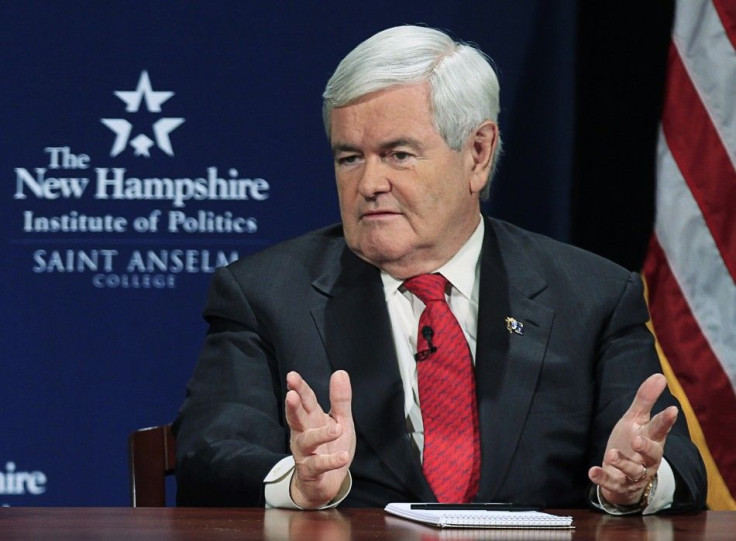Saul Alinsky Has More in Common with Gingrich than Obama
Analysis

Republican presidential hopeful Newt Gingrich has been invoking the name of Saul Alinsky often to describe the danger a second term for President for Barack Obama could bring to America.
Twice, at his victory speech in South Carolina and in a Florida debate, Gingrich, a former Speaker of the U.S. House of Representatives ,has accused Obama of shaping America to reflect the ideals of Alinsky. After graduation from Columbia University in 1983, Obama spent four years as a community organizer in Chicago before enrolling at Harvard Law School.
Who was Saul Alinsky? Is he evil personified, as Gingrich suggests? And why is he unwilling to throw any light on this person? He says nothing beyond mentioning his name... assuming his audiences are well aware of the evil within.
Here is a brief description of who Alinsky was and why he is not the demon Gingrich projects him to be.
Saul Alinsky
Alinsky was born in Chicago in 1909 to Russian-Jewish immigrant parents. He died in 1972, when Obama was just 10 years old.
Alinsky initially majored in archeology but couldn't find a job in that field during the Great Depression. He later received a feellowship to study criminology at the University of Chicago.
It was this period of his life (along with his earlier period of unemployment) that gave him insights into how society worked and how he could connect the dots to organize communities to fight for their rights.
Gingrich portrays Alinsky as an alien communist radical who is anti-constitutionalist.
What he Really Was:
Alinsky is considered the father of community movements - the act of bringing communities together to fight for a common cause. He was never a communist although his philosophy d similarities to socialist ideologies.
He was, however, for the underprivileged and the poor. He believed that if the poor and deprived organized themselves, they could bargain for what was due to them. He was for the sharing of not just wealth but also power.
Admittedly, this does look a tad socialist.
However, Alinsky believed in the power of democracy to achieve his objectives and never used or preached violence; he used, instead, the principles of the free world as his tool, as is evident in his pro-democratic philosophy and writings.
Dare we say this makes him more an American, who believes in the American founding fathers and the country's constitution? This is in contrast with to the way Gingrich portrays him.
In fact, it could be argued Alinsky is more a Republican than a Democrat. Even, for example, when advocating for the welfare of the deprived, he was against providing any kind of charity.
In addition, he never spoke about taxing the rich. He even felt the taxes were higher than the level they should be at - which is the same ideology Gingrich subscribes to.
Furthermore, he had the support of priests in Chicago. He was honored with the Pacem In Terris award by Catholic Archdioceses and Christian organizations in 1969 - a clear indication he had conservative support.
It shouldn't be any surprise then that Alinsky is considered as something of a messiah for the poor.
Not Radical:
Gingrich seems keen on referring to Alinsky as a radical. However, according to a Flaglerlive.com analysis, he was actually more pragmatic than radical.
It is true Alinsky described himself as a radical in his book The Rule for Radicals. However, an analysis of his writings and life's work suggests otherwise.
More interestingly, many modern day movements like the Tea Party movement (which Gingrich endorses) and the Occupy movements are based on Alinsky's principles of community organizing; especially the Occupy movements, because Alinsky fought similar wars against forceful house evacuations in his time.
In fact, Gingrich's own statement against Romney - He has the money, I have the people - resonates with Alinsky's ideology.
Alinsky worked with the people, lived with the people and won for the people. If Alinsky is radical then by the same yardstick, is Gingrich one too?
Finally, being a historian himself, why exactly did Gingrich try to demonize Alinsky? It is inconceivable that he hoped nobody would have the time to search for details.
This is the mystery that Gingrich's campaign should solve.
© Copyright IBTimes 2024. All rights reserved.






















